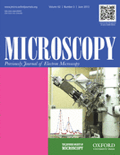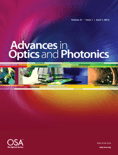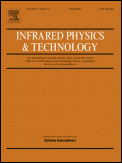
Journal of Biophotonics
metrics 2024
Advancing Research at the Intersection of Light and Life
Introduction
Journal of Biophotonics is a prestigious academic journal published by WILEY-V C H VERLAG GMBH in Germany, dedicated to advancing the field of biophotonics through high-quality research. With an ISSN of 1864-063X and an E-ISSN of 1864-0648, this journal is recognized for its contributions within diverse categories, including biochemistry, genetics, molecular biology, chemistry, engineering, materials science, and physics, earning a commendable Q2 ranking in several of these fields as of 2023. The journal aims to bridge the gap between theoretical research and practical applications, fostering interdisciplinary collaboration that is critical for innovations in imaging, diagnostics, and therapeutics. Researchers, professionals, and students alike will find the Journal of Biophotonics invaluable for staying informed about the latest developments and breakthroughs in this dynamic field, making it a cornerstone for knowledge dissemination and scholarly discourse from its inception in 2008 and continuing through 2024.
Metrics 2024
 0.58
0.58 2.00
2.00 2.60
2.60 79
79Metrics History
Rank 2024
Scopus
IF (Web Of Science)
JCI (Web Of Science)
Quartile History
Similar Journals

Microscopy
Bridging Disciplines Through Advanced Imaging ResearchMicroscopy, published by Oxford University Press, is a prestigious journal dedicated to advancing the field of microscopy and imaging in biological and applied sciences. With a dynamic coverage dating from 1953 to the present, it offers vital insights into the latest techniques and applications across various disciplines, including Instrumentation, Radiology, Nuclear Medicine and Imaging, and Structural Biology. The journal is recognized for its quality, illustrated by its Q2 and Q3 quartile rankings in relevant categories for 2023. Researchers, professionals, and students will find Microscopy an invaluable resource for keeping abreast of contemporary developments and methodologies in the field. As an open-access journal, it promotes equitable access to cutting-edge research and fosters collaboration among the international scientific community, making it essential reading for anyone involved in microscopy research and its applications. For more information, please visit their site for access options and contributions.

Advances in Optics and Photonics
Connecting Researchers in the Realm of LightAdvances in Optics and Photonics, published by the Optica Publishing Group, stands at the forefront of research dissemination in the fields of Atomic and Molecular Physics and Optics, alongside its prominence in Water Science and Technology. With an impressive Q1 ranking in both categories and a Scopus rank of #2/224, this journal boasts a 99th percentile status, underscoring its significance in the academic community. As a beacon of knowledge since its inception in 2009, the journal is dedicated to featuring cutting-edge research, innovative methodologies, and transformative applications in optics and photonics that can drive advancements across diverse scientific domains. While not an open-access journal, it provides vital insights for researchers, professionals, and students eager to stay updated on emerging trends and breakthroughs. With a convergence period extending to 2024, Advances in Optics and Photonics is positioned as an essential resource for anyone looking to explore the evolving landscape of light-based technologies.

eLight
Exploring New Frontiers in Electronic, Optical, and Magnetic MaterialseLight is a leading academic journal published by SPRINGER NATURE, dedicated to the dynamic field of Atomic and Molecular Physics, as well as Electronic, Optical, and Magnetic Materials. Launched in 2021, the journal has quickly established itself as a reputable source of cutting-edge research, evidenced by its impressive Q1 quartile rankings in both categories for 2023, alongside remarkable Scopus rankings that place it in the top 2% of its fields. With a commitment to advancing knowledge and fostering innovation, eLight invites contributions from researchers, professionals, and students who are passionate about exploring new frontiers in these critical areas of study. Hitting a critical intersection of physics and materials science, the journal provides an open forum for the dissemination of experimental findings, theoretical studies, and application-based research, ensuring accessibility to vital discoveries that drive progress in technology and academia. Located in Singapore, eLight is poised to make significant contributions to the scientific community until at least 2024, and beyond.

INFRARED PHYSICS & TECHNOLOGY
Fostering Breakthroughs in Materials and Condensed Matter PhysicsINFRARED PHYSICS & TECHNOLOGY, published by Elsevier, stands at the forefront of research in the fields of atomic and molecular physics, materials science, and condensed matter physics. With an impressive impact factor reflected in its Q2 quartile ranking across multiple categories, this journal serves as a key platform for disseminating high-quality peer-reviewed articles that advance understanding of infrared phenomena and their applications. As an essential resource from 1994 to 2024, it contributes significantly to the ongoing dialogue within the scientific community, providing researchers, professionals, and students with cutting-edge insights into electronic, optical, and magnetic materials. Although not an open access journal, its articles are widely disseminated and recounted in major databases, ensuring its pivotal role in the advancement of both theoretical and applied physics. Located in the vibrant academic hub of Amsterdam, the journal encourages innovative research that drives multi-disciplinary studies and fosters collaboration among scientists globally.

Photonics Letters of Poland
Fostering Collaboration in Photonics ResearchPhotonics Letters of Poland is a prominent journal dedicated to the field of photonics, published by the Photonics Society of Poland. With an ISSN of 2080-2242, the journal aims to foster knowledge and innovation within electronic, optical, and magnetic materials. Although it currently holds a Q4 classification in its category and is ranked in the 21st percentile, it serves as an essential platform for researchers and practitioners to share their findings and advancements. The journal covers a range of topics from foundational research to applied science, highlighting advancements in photonics technologies and their applications. Operating from Warsaw University of Technology, the journal promotes open access to knowledge while ensuring rigorous peer review standards. With its coverage spanning from 2009 to 2024, Photonics Letters of Poland represents a vital contribution to ongoing research within the field, making it indispensable for students, professionals, and academics looking to stay attuned to emerging trends and developments in photonics.

Advanced Photonics Research
Illuminating the Future of PhotonicsAdvanced Photonics Research is a leading open-access journal published by WILEY, dedicated to advancing the field of photonics through rigorous research and comprehensive reviews. With its ISSN 2699-9293, the journal aims to disseminate innovative findings in areas such as photonic materials, devices, systems, and applications. Since transitioning to an Open Access model in 2020, it has significantly increased accessibility for researchers, professionals, and students alike, promoting wider dissemination and collaboration within the global photonics community. The journal's commitment to high-quality, peer-reviewed content ensures it remains an essential resource for those seeking to stay at the forefront of photonics research. Positioned to influence both academia and industry, Advanced Photonics Research is an invaluable platform for sharing cutting-edge discoveries that drive the future of technology.

Biomedical Optics Express
Transforming Medicine with Cutting-Edge OpticsBiomedical Optics Express, published by the prestigious Optica Publishing Group, is an open-access journal that has been at the forefront of the field of biomedical optics since its inception in 2011. With an ISSN of 2156-7085, this journal has established itself as a premier platform for disseminating high-quality research that spans an array of topics in atomic and molecular physics, optics, and biotechnology. As a testament to its scholarly impact, it is currently ranked in the Q1 category for both Atomic and Molecular Physics and Biotechnology, reflecting its commitment to excellence within these disciplines. The journal features cutting-edge articles that foster innovation and collaboration among researchers, professionals, and students who are passionate about applying optical technologies to solve pressing challenges in medicine and biology. Based in the United States, Biomedical Optics Express continues to shape the future of optical science and its applications, inviting contributions that inspire and drive forward the boundaries of knowledge.

Current Optics and Photonics
Shaping Tomorrow's Optics Through Scholarly DialogueCurrent Optics and Photonics is a premier journal published by the Optical Society Korea, focusing on the dynamic and evolving fields of optics and photonics. With an ISSN of 2508-7266 and E-ISSN 2508-7274, it provides a comprehensive platform for scholarly communication, emphasizing innovations, advances in technology, and theoretical developments in atomic and molecular physics and optics. Situated in South Korea's vibrant academic landscape, this open access journal aims to bridge the gap between theoretical research and practical applications, fostering collaboration and knowledge sharing among researchers, professionals, and students alike. Although currently ranked in the Q3 category for both Atomic and Molecular Physics and Optics, with a Scopus rank of #183/224, it showcases significant contributions that enhance understanding in these critical areas. The journal encourages submission of original research articles, reviews, and technical notes, with the objective of driving forward the conversation in optics and photonics throughout its converged years from 2017 to 2024. Embrace the opportunity to contribute to this expanding field and become part of a community that is at the forefront of scientific discovery.

Optics Continuum
Pioneering Discoveries in Light and MaterialsOptics Continuum, published by Optica Publishing Group, is a pioneering open access journal dedicated to advancing the field of optics and photonics. Since its inception in 2022, this journal seeks to provide a vital platform for the dissemination of groundbreaking research and innovative developments across several interconnected domains, including electrical and electronic engineering, atomic and molecular physics, and material sciences focused on electronic, optical, and magnetic materials. With impressive rankings in Scopus—placed #384 in Electrical and Electronic Engineering and #109 in Atomic and Molecular Physics—the journal aims to engage a diverse readership comprised of researchers, professionals, and students, promoting collaboration and knowledge exchange. The journal's open access model ensures that cutting-edge research is readily available to all, nurturing an inclusive academic environment. For those interested in staying at the forefront of optics research, Optics Continuum is an essential resource that continuously enriches the global scientific community.

CONCEPTS IN MAGNETIC RESONANCE PART A
Enhancing Understanding of Imaging TechniquesCONCEPTS IN MAGNETIC RESONANCE PART A, an esteemed journal published by Wiley-Hindawi, stands as a pivotal platform in the field of spectroscopy since its inception in 2002. With an Open Access model implemented in 2019, this journal allows for the broad dissemination of research findings, fostering collaboration and innovation among researchers, professionals, and students globally. While it currently holds a quartile ranking of Q4 in Spectroscopy, it aspires to provide a comprehensive collection of original research and review articles that address significant advancements and methodologies in magnetic resonance. Its unique focus invites contributions that enhance understanding and application of imaging techniques, thereby playing a vital role in bridging theoretical concepts to practical applications in chemistry. Boasting an ISSN of 1546-6086 and an E-ISSN of 1552-5023, it continues to encourage the exchange of ideas and data among the scientific community within the United States and beyond, based in the historic Adam House in London.